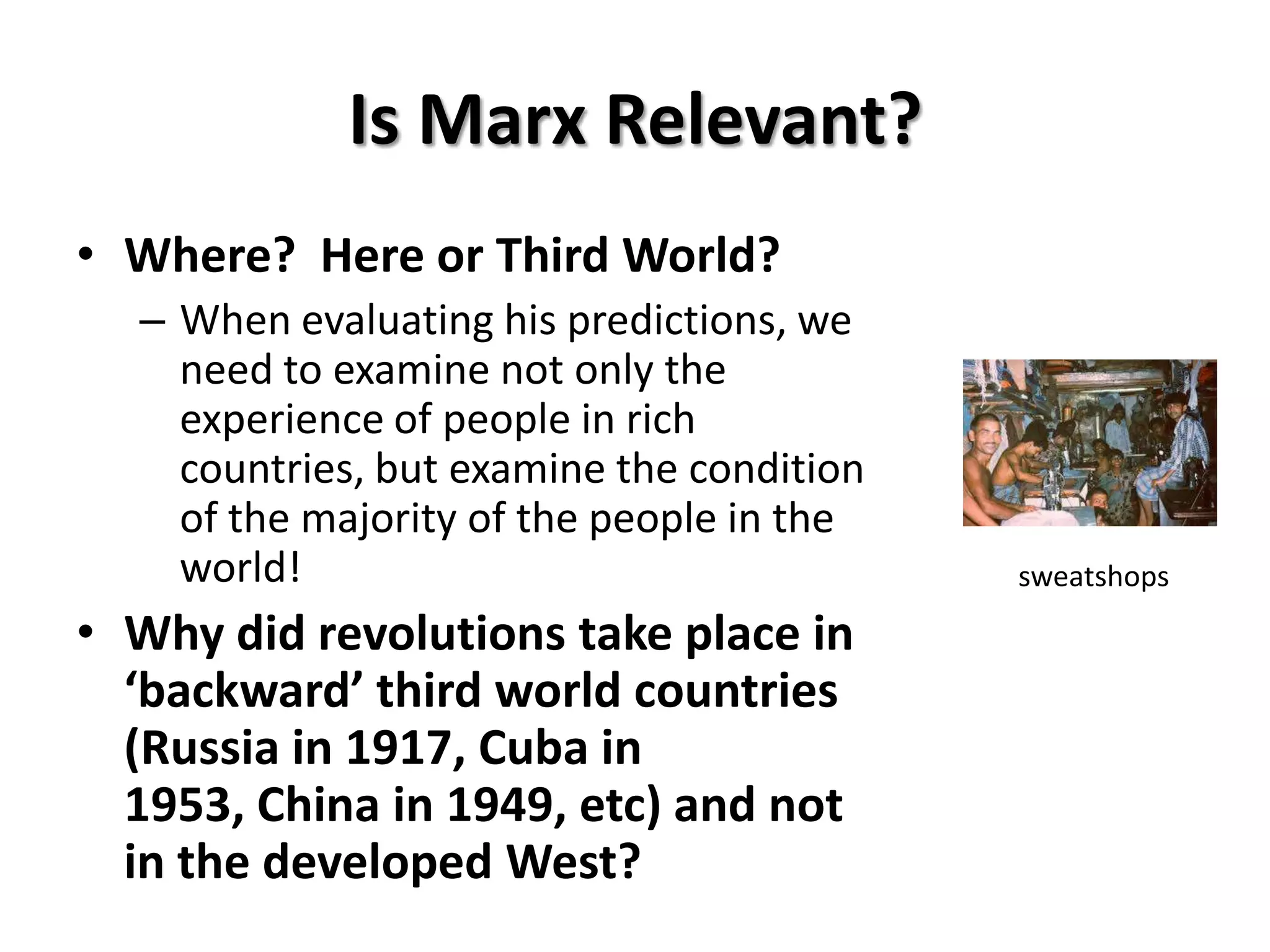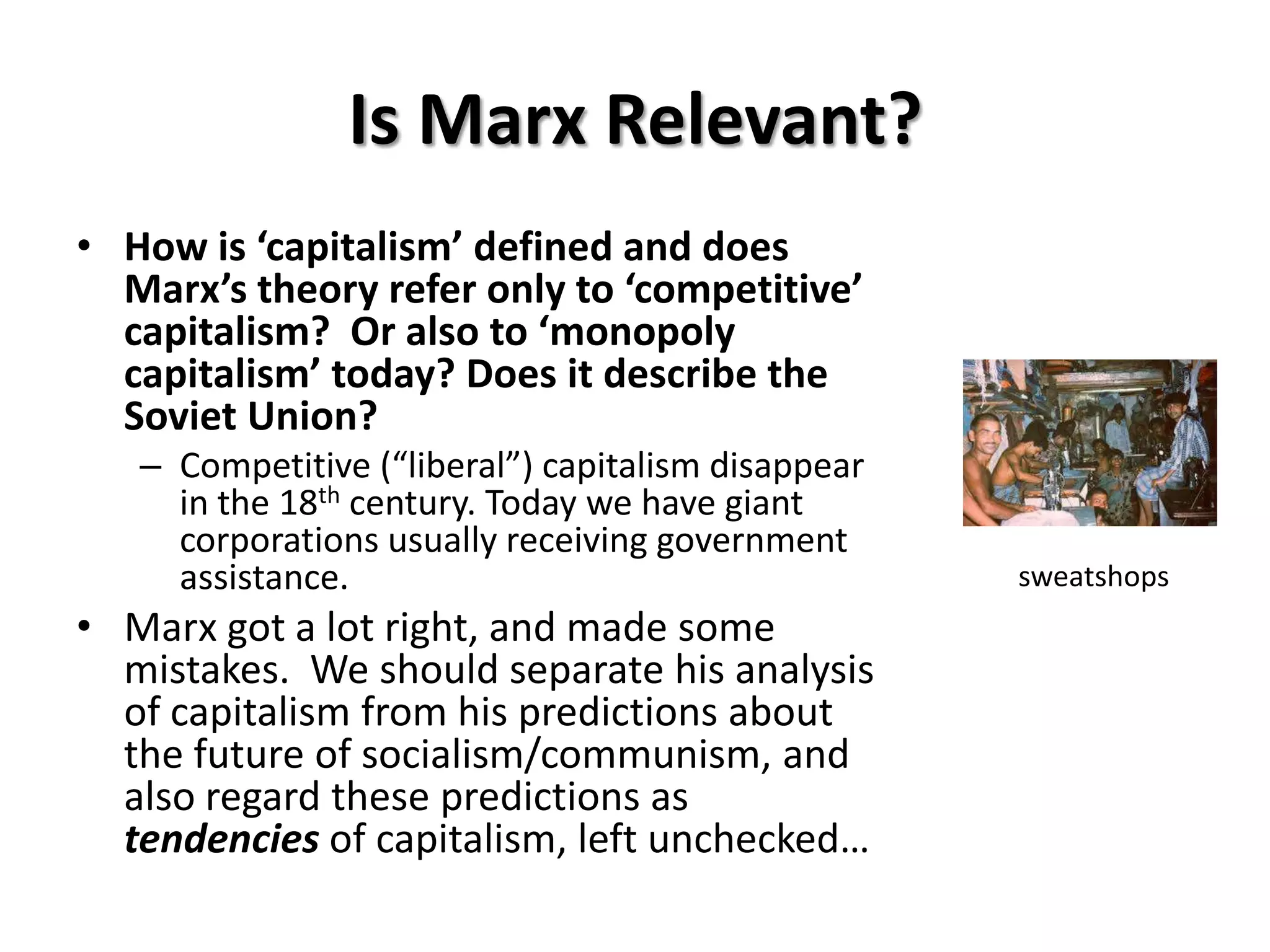This document provides historical context on Marxism and key figures related to Marx's work such as Engels, Proudhon, Bakunin, and Fourier. It summarizes Marx and Engels' collaboration and major publications including the Communist Manifesto. It also discusses Marx's views on "Utopian Socialism" and differences between his "scientific socialism" and the ideas of other socialist thinkers of his time. Lastly, it examines various interpretations of Marx's work including traditional and non-traditional Marxism.
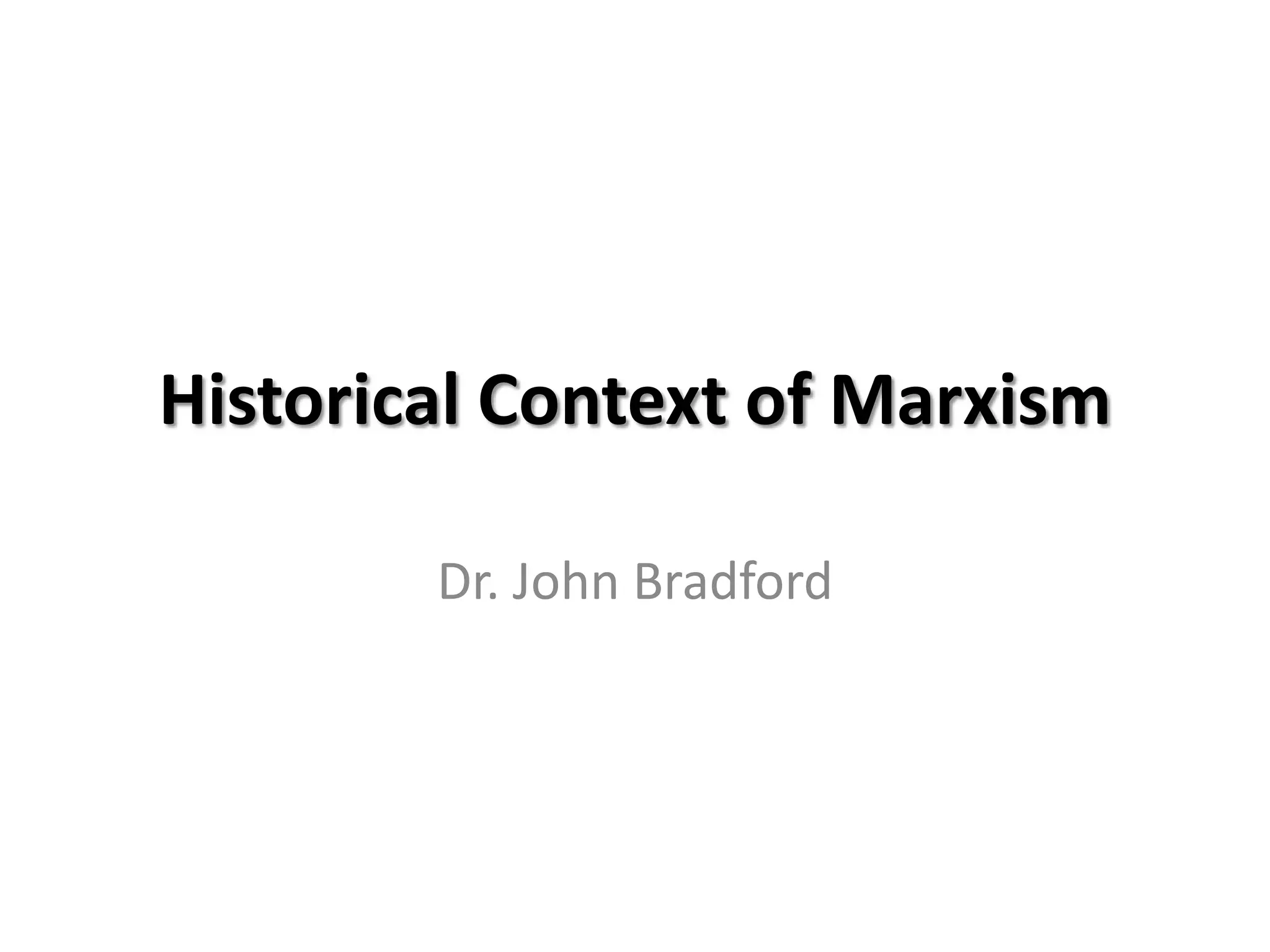
![Marx: Devil or Saint?
• “While Marx and Engels are
canonized in Russia, they are still
crucified in much of the world.
They merit neither treatment, for
they were neither saints nor devils.
[Their work] belongs in the great
line of economic viewpoints that
have successively
clarified, illuminated, and
interpreted the world for us … and
is neither without flaw nor devoid
of merit” (Robert Heilbroner, The
Worldly Philosophers)](https://image.slidesharecdn.com/lecturehistoricalcontextofmarxism-111114015230-phpapp01/75/Historical-context-of-marxism-2-2048.jpg)


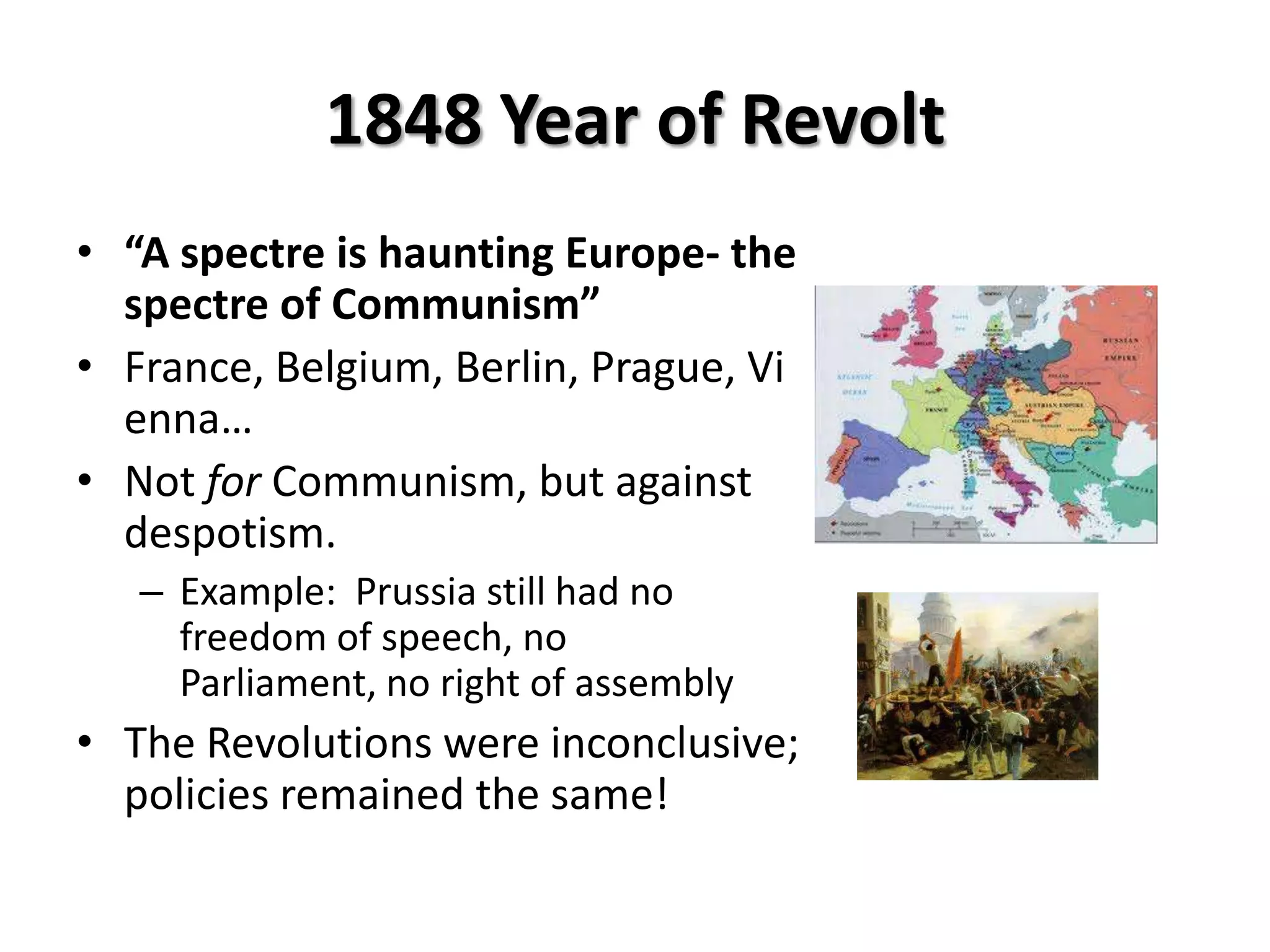
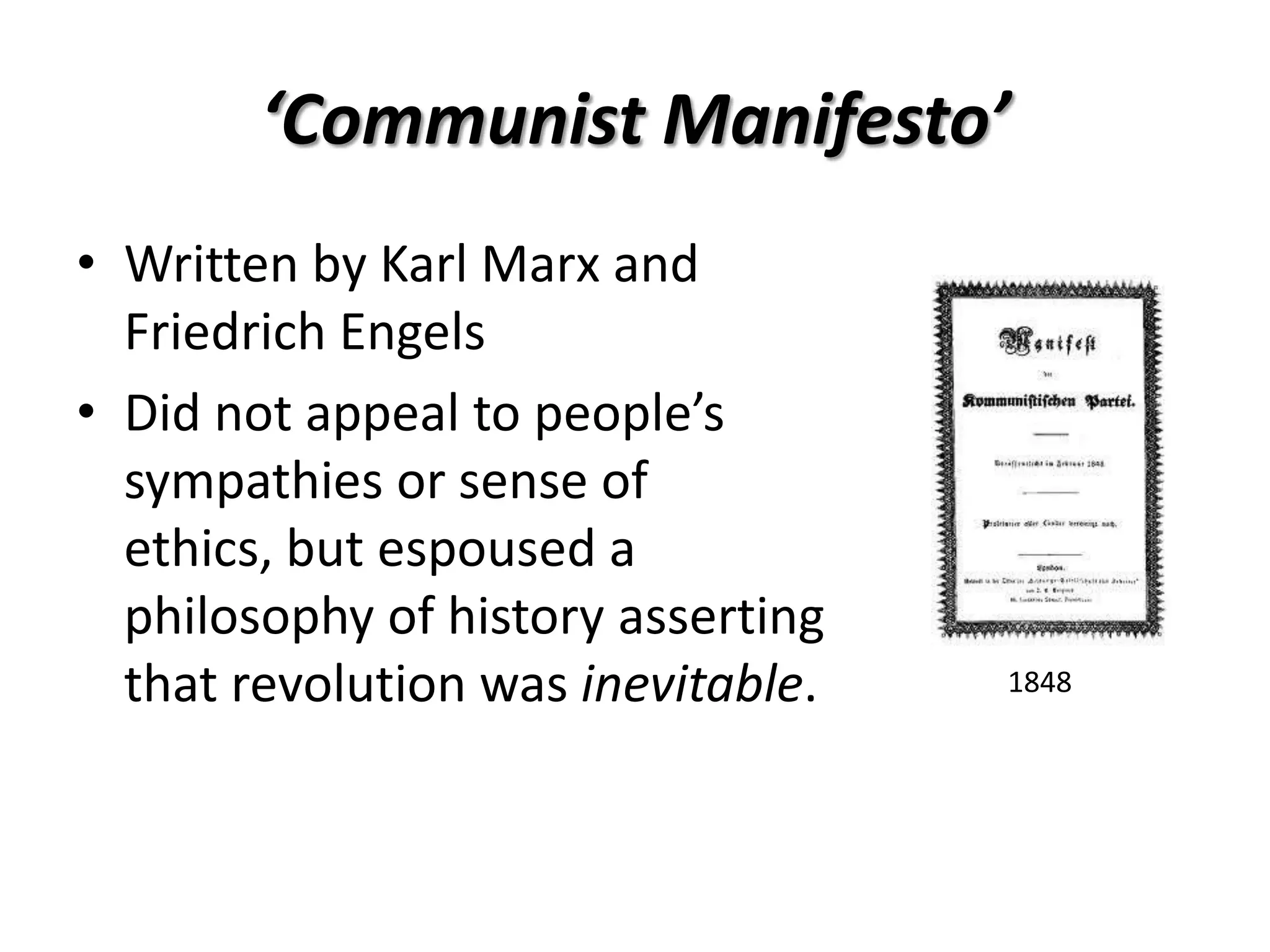
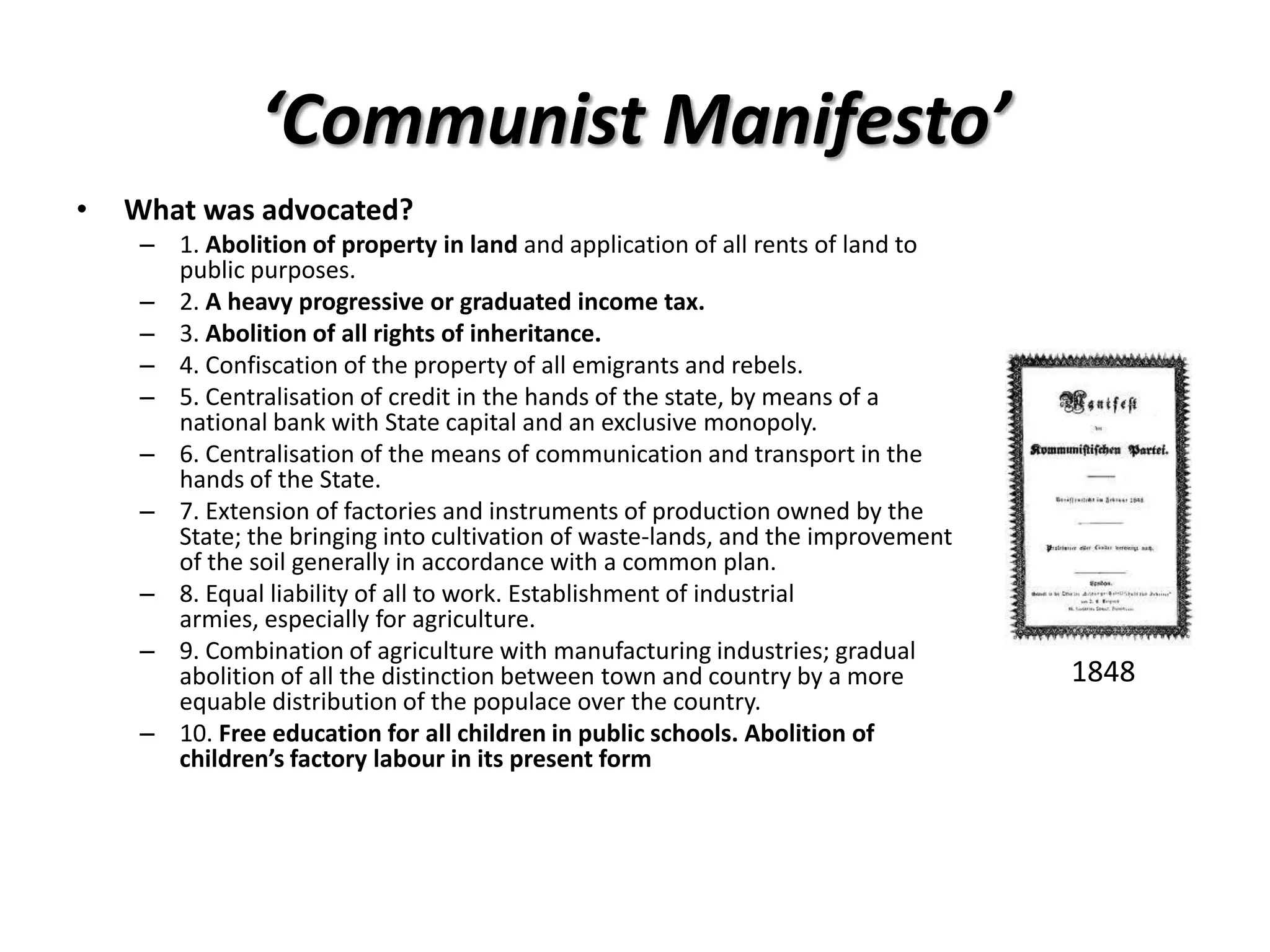
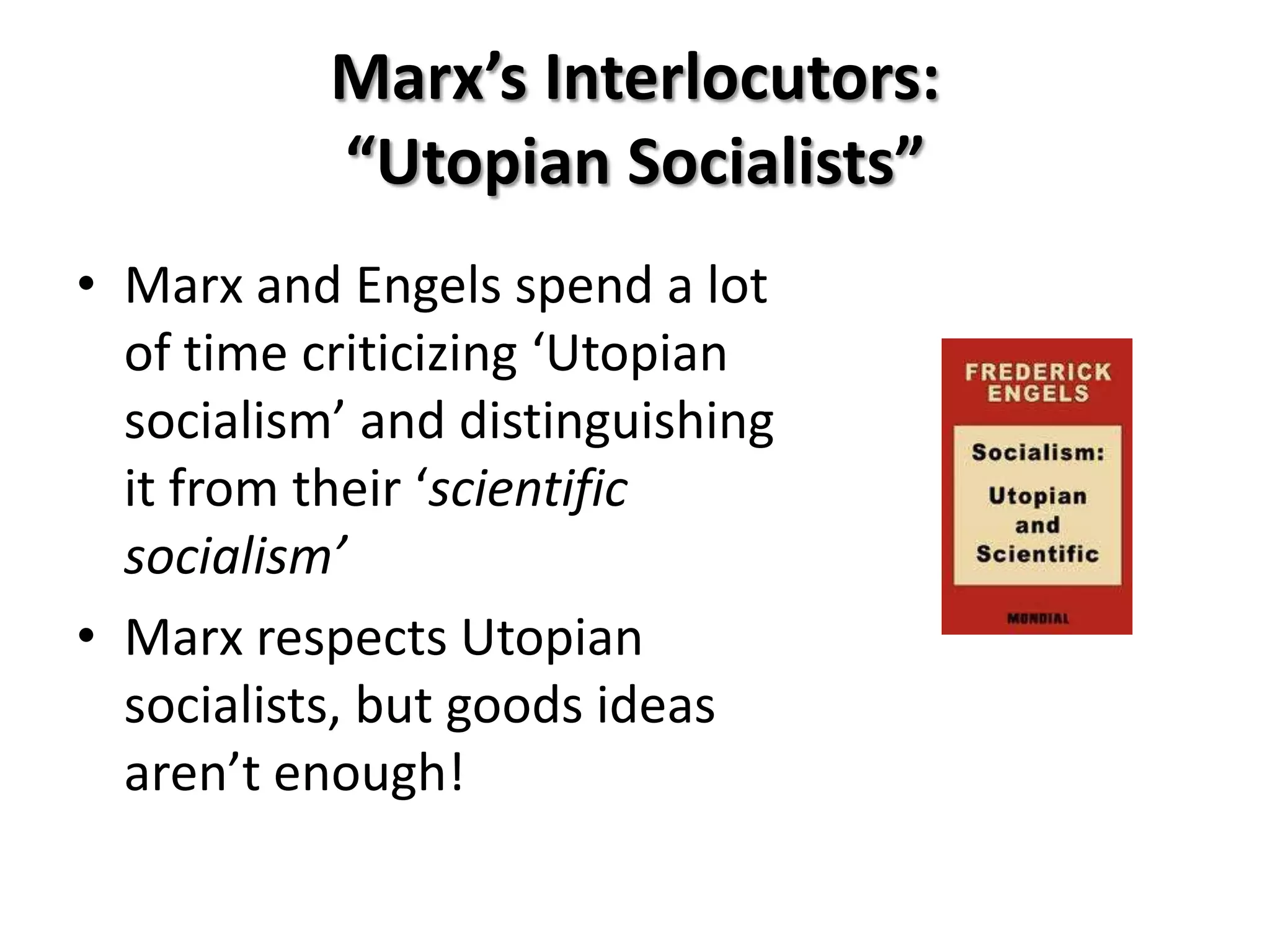
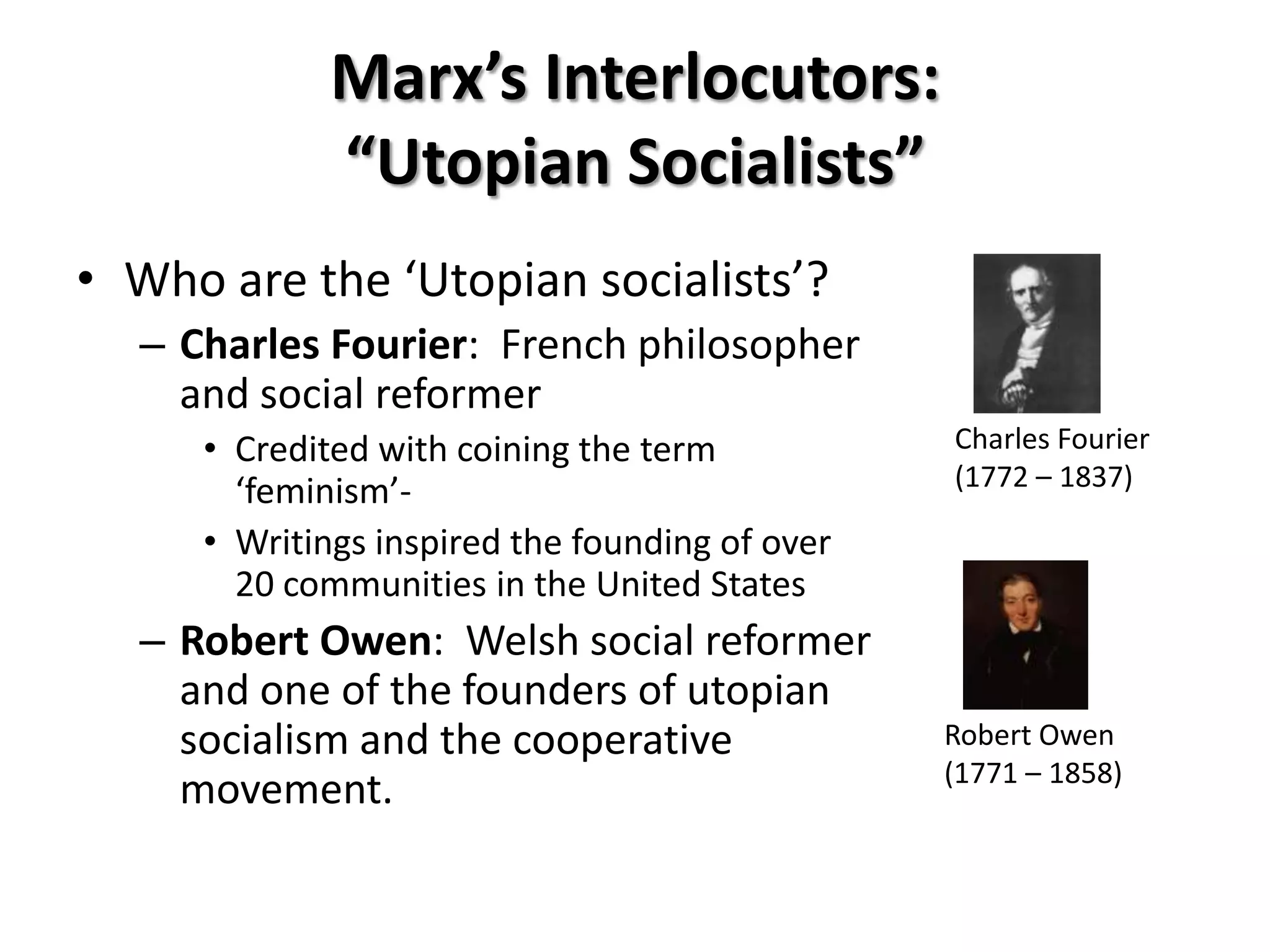
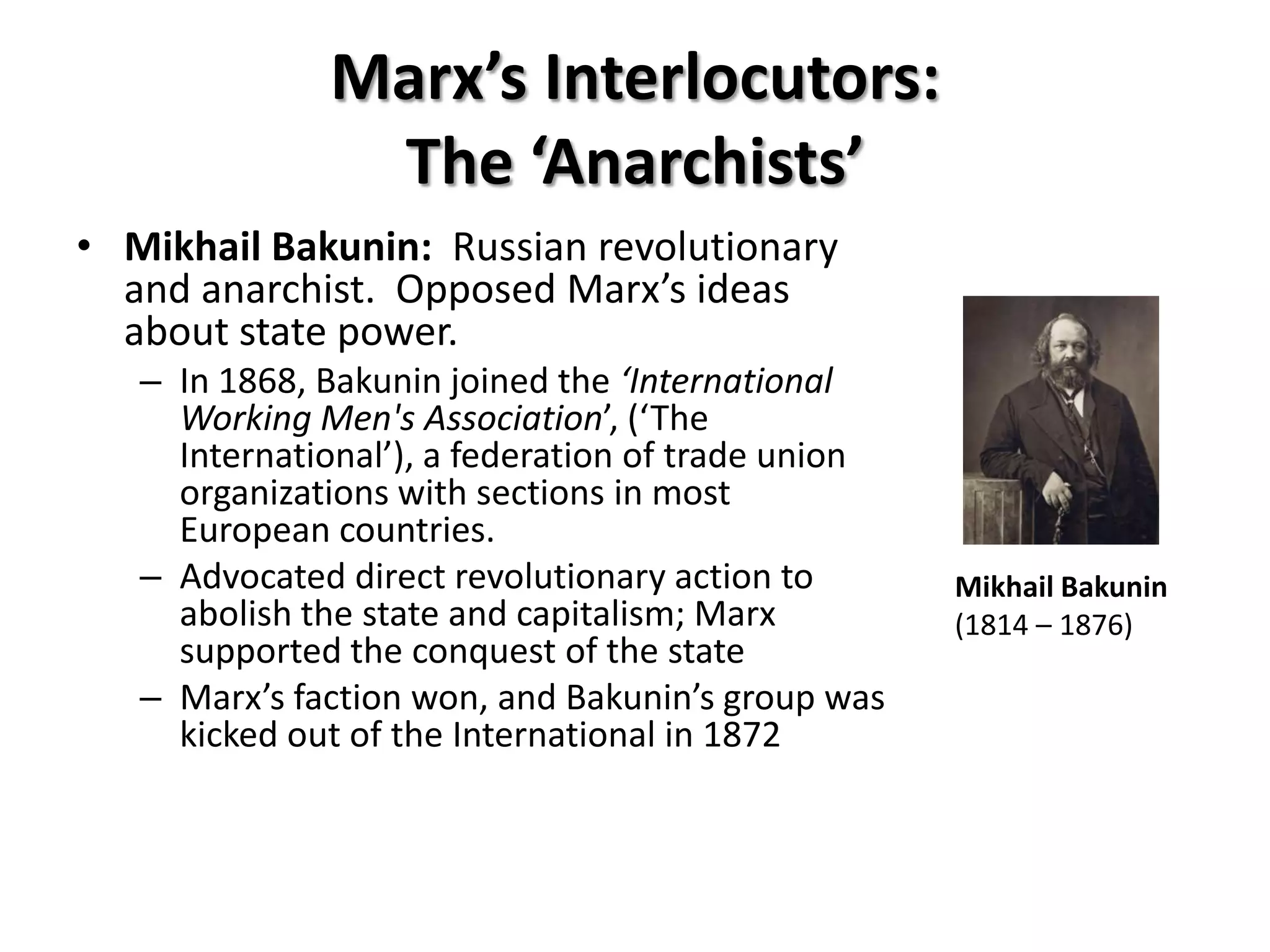
![Marx’s Interlocutors:
The ‘Anarchists’
• Pierre-Joseph Proudhon: French
politician, mutualist philosopher and
socialist. He was a member of the French
Parliament, and he was the first person to
call himself an "anarchist“ (from Wikipedia)
– Favored cooperatives; opposed
nationalization and use of state power
– Thought revolution could occur (1809 – 1865)
peacefully, without revolution
• What is Property? (1840): “Property is
Theft”
– Only legitimate source of property is labor:
what one produces is one’s property.
– Capitalists and landowners exploit
, ‘steal’, profits from workers *sounds like
Marx]](https://image.slidesharecdn.com/lecturehistoricalcontextofmarxism-111114015230-phpapp01/75/Historical-context-of-marxism-11-2048.jpg)
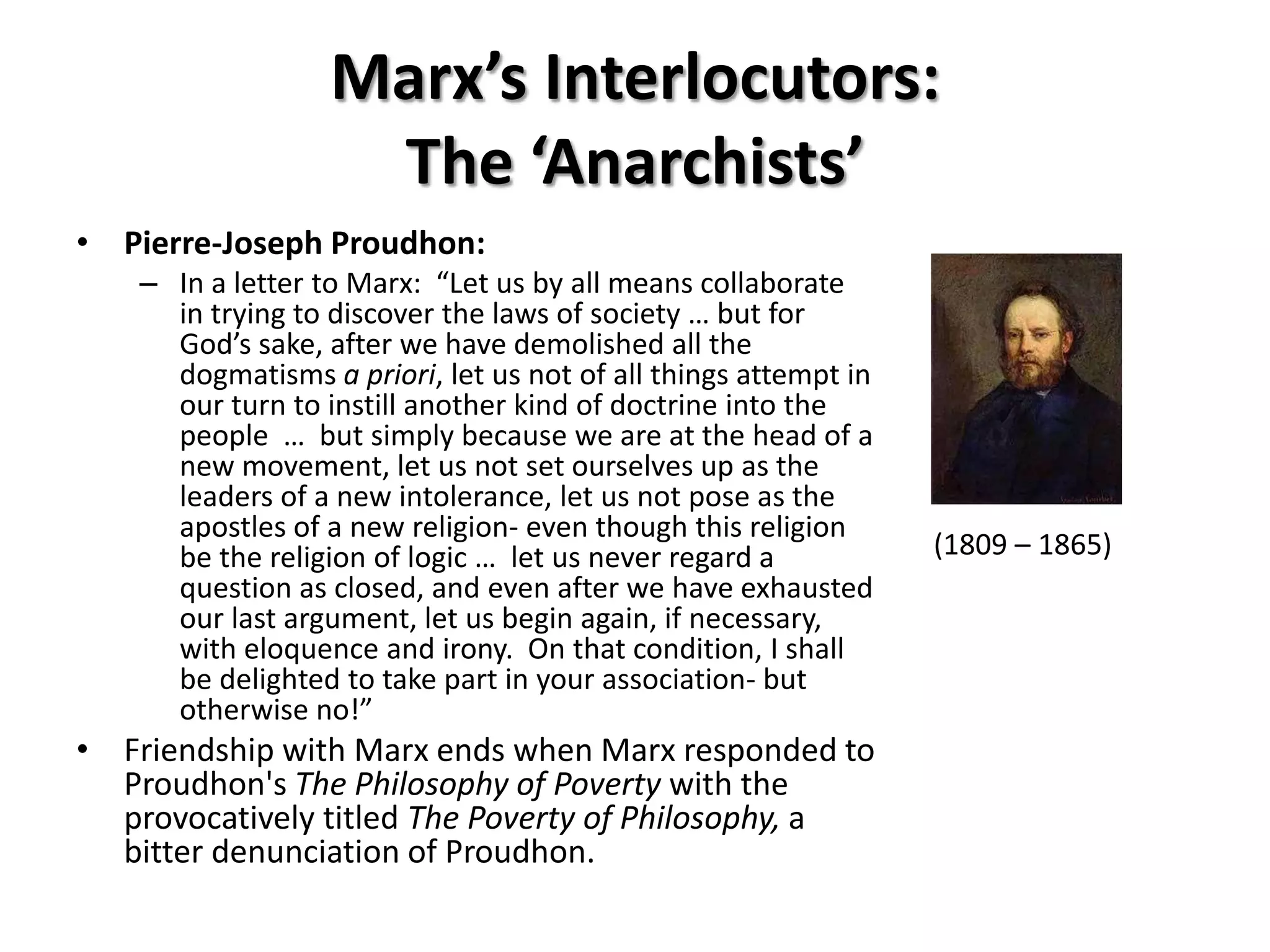
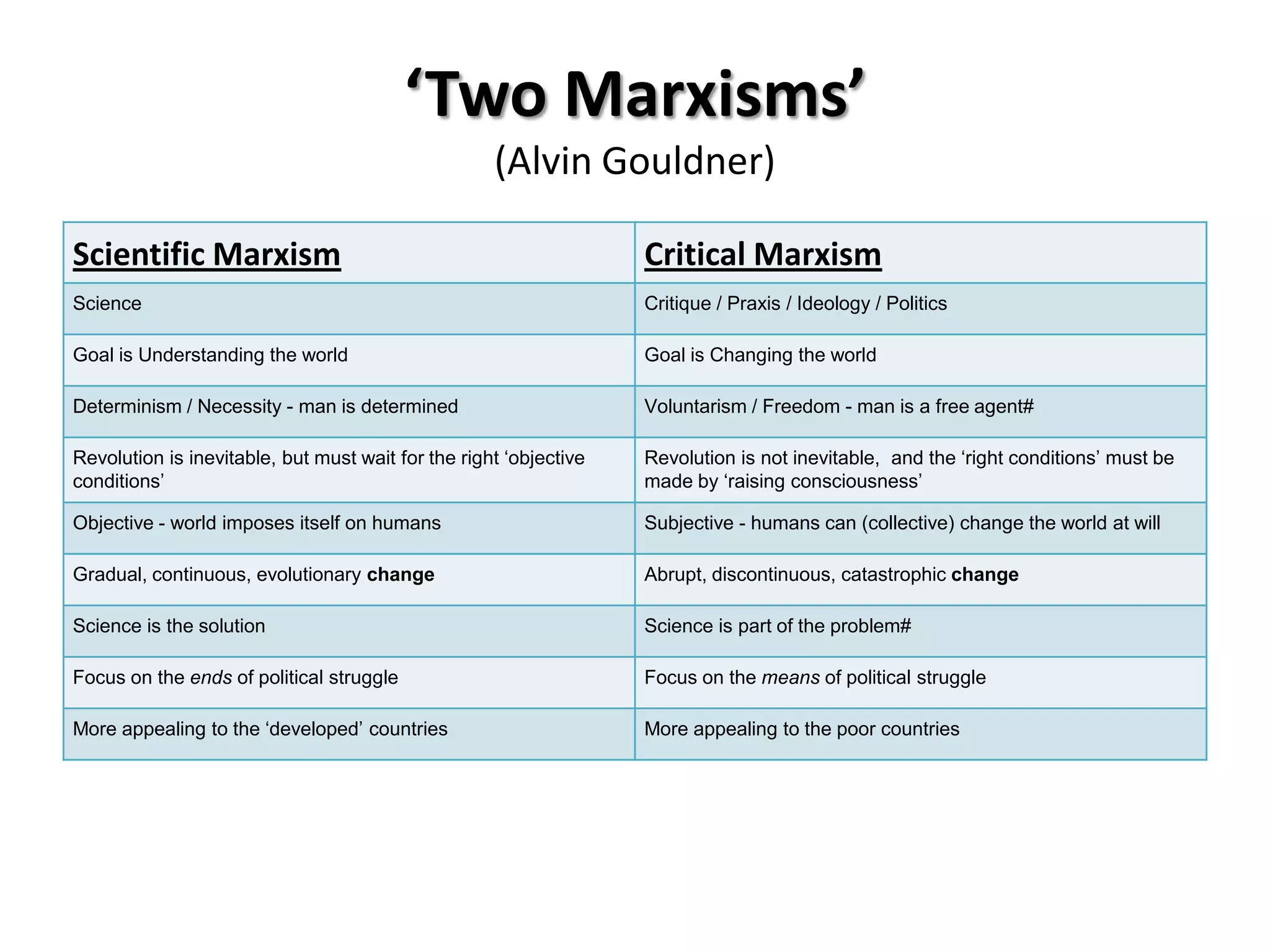
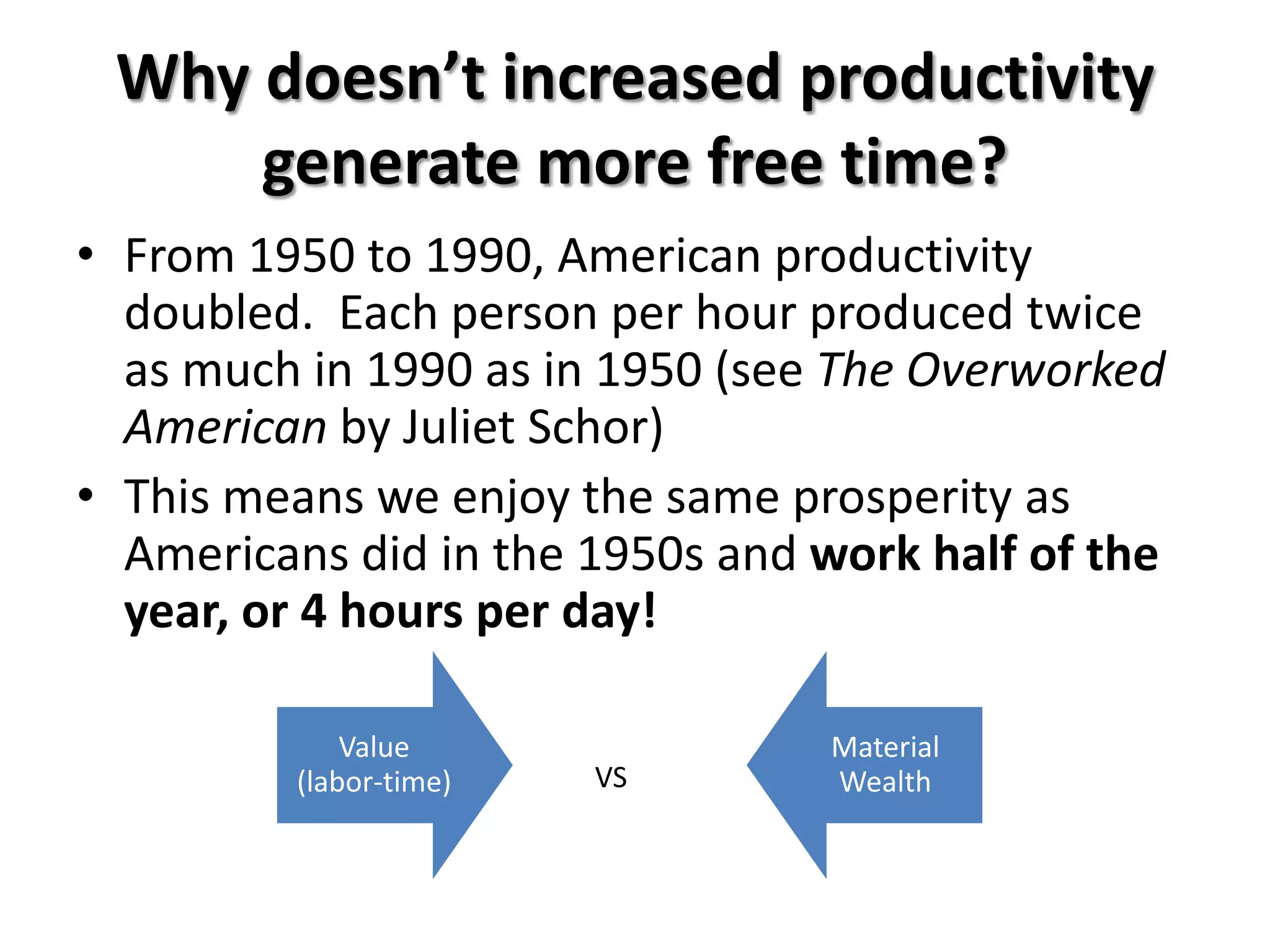
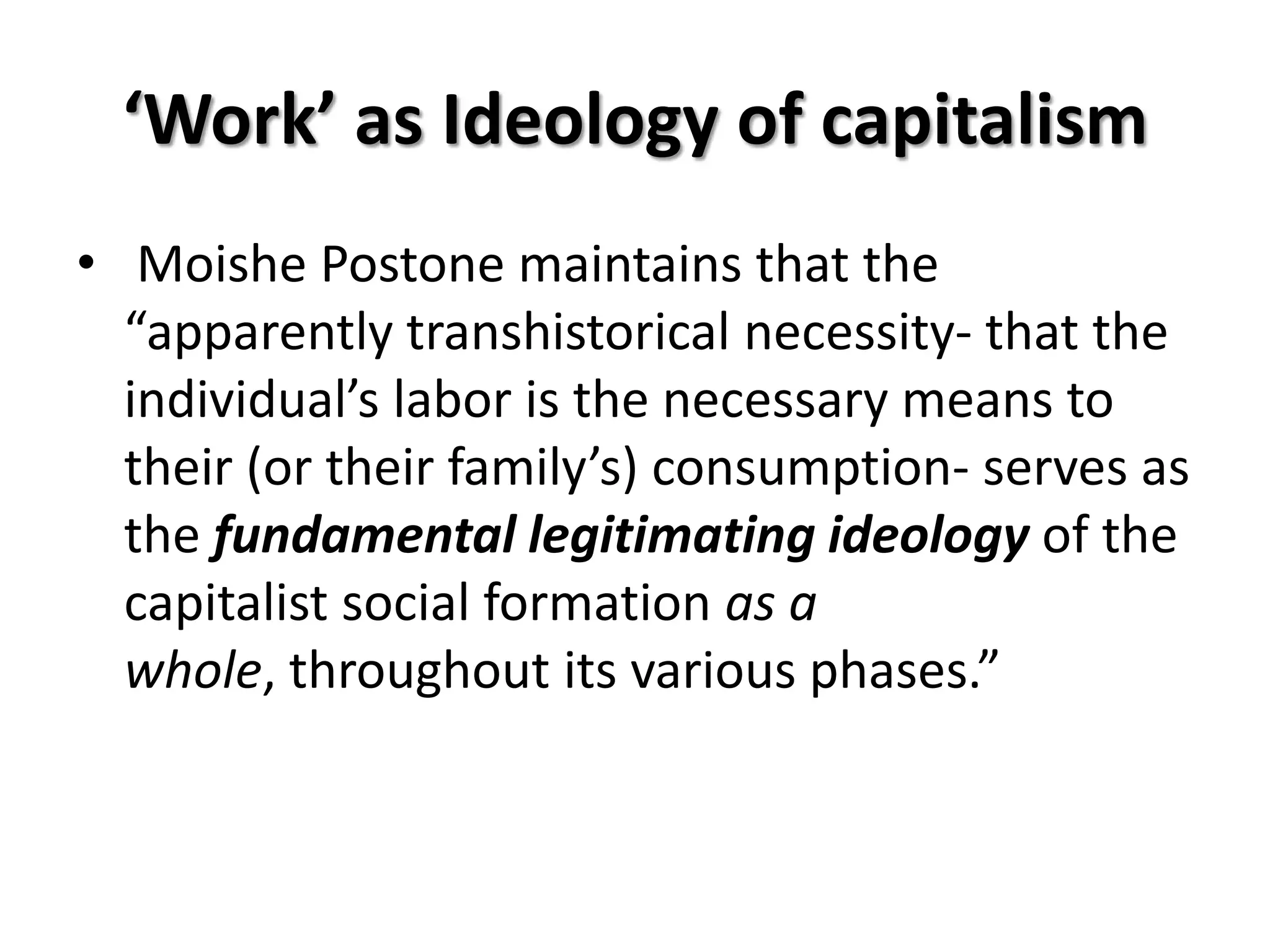
![Traditional and Non-traditional
Interpretations
(Moishe Postone)
Traditional Marxism Non-Traditional Marxism
Marx as critique of competitive (liberal) Marx as critique of value determination:
capitalism of 18th century contradiction of value (labor-time) vs
material wealth [see below]
Marx as critique of exploitation Marx as critique of possibilities created
but not realized in capitalism
Capitalism as domination of labor Capitalism as domination through labor
Focus on distribution Focus on production itself
Labor as transhistorical (labor is Unique role of labor in capitalism as new
production in all societies) means of social interdependence and
mediation
Revolution as high wages (end to Revolution as free time
exploitation)](https://image.slidesharecdn.com/lecturehistoricalcontextofmarxism-111114015230-phpapp01/75/Historical-context-of-marxism-16-2048.jpg)
